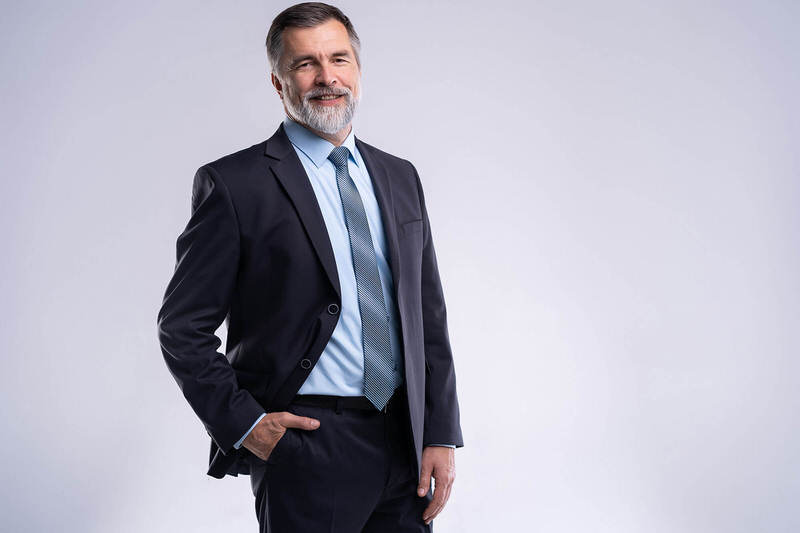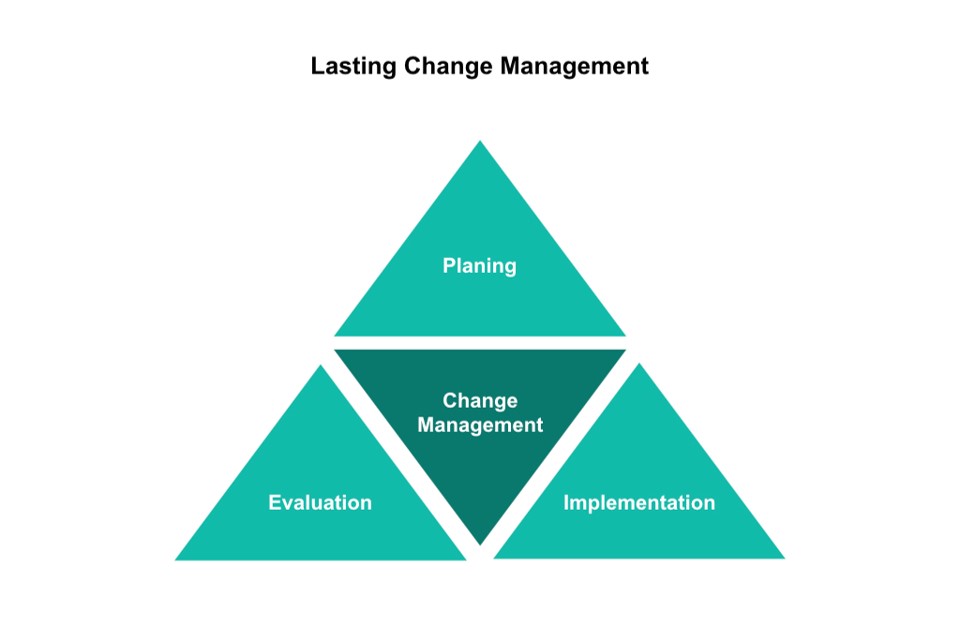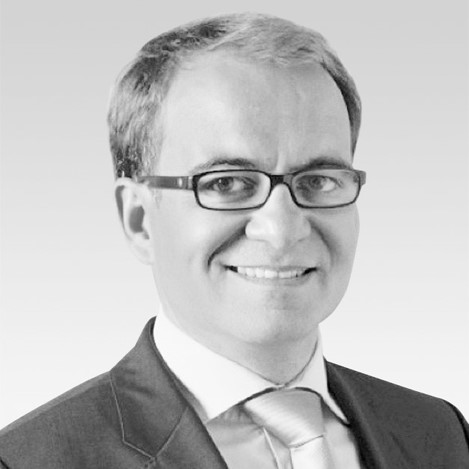




- Center for Strategic Management
- Center for Innovation
- Center for Start-up-Management
- Center for Digital Business Transformation
- Center for Governance & Compensation
- Center for Sustainability Management
- Center for Executive Coaching
- Center for Leadership
- Center for Change Management
- Center for Personal Leadership & Motivation
- Center for New Work
- Center for Communication
- Center for Rhetoric
- Center for Neuro Intelligent Leadership
- Center for Marketing Management
- Center for Brand Management
- Center for Online Marketing & Social Media
- Center for Resilient Marketing
- Center for Sales Communication
- Center for Financial Management
- Center for Mergers & Acquisitions
- Center for Controlling
- Center for International Management
- Center for Asia
Center for Change Management
Our increasingly complex environment demands organizations to increase their ability to adapt and change. These very abilities result from the perceptions, perspectives and observations of the organization’s members. Without the communication of these skills, organizations lose their capability of perception and thus their ability to react and anticipate future developments. Although companies are aware of these challenges, 60-70 % of all initiated change projects still fail - a large part due to the resistance of the affected employees and managers. The impact of psychosocial factors during change projects is still largely underestimated! Transformation projects are often regarded as potentially threatening by the persons affected and thus stand in the way of people's individual performance.
This is why the St. Gallen Center for Change Management focuses on people in change processes. We advise and support corporate management and executives in change contexts and prepare organizations for the sustainable and successful implementation of transformation processes.
Comprehensive organizational change differs from continuous adaptation processes. A profound change has fundamental effects on established structures, work processes and – above all – on culture and behavior. The extent to which a change is perceived as radical particularly depends on the mindsets of those affected. In addition to the obvious entities of change such as organizational structures, processes or strategies, transformation processes must therefore also take into account a subtler and less visible level. Psychosocial factors such as the assessment of personal competence and self-effectiveness, the attitudes and motivations of the involved persons along with their ability and willingness to change set unconscious and often hard-to-control parameters for change. It is at this level where significant directions for effective change processes are set and the success of transformation projects is determined. In other words, individuals first need to understand the ‘why’ for changes before they can decide whether they ‘want’ or at least accept them to finally realize their effective and target-oriented implementation.
Modern change management must therefore consciously control the psychosocial level of change projects – from initiating the change, to guiding and involving the people affected, to sustainably anchoring the innovations in the organization. Consequently, the St. Gallen Center for Change Management focuses on the individual and the preparation of organizations, in particular of managers and executives, the involvement of employees, and the facilitation of change processes. This approach creates essential prerequisites for the successful implementation of change measures.

Consulting Services
- Strategic consulting on change (at the levels of executive management, organizational development, personnel development, change managers)
- Conception & planning of transformation
- Role definition and staffing
- Conception & planning of participation
- Conception, planning and implementation of development measures for managers and employees
- Coaching of managers in the change process
Corporate Programs
- Leadership in change projects
- Participation in change processes
- The executive as a coach in times of change
- Modern leadership - Fresh up
- The learning organisation - professionalising managers through intervention measures
Head
Oliver Titzmann
Director of the Center for Change Management at SGMI Management Institute St. Gallen
Oliver Titzmann studied economics at Warnborough College in Dublin. His academic education focused on communication and psycholinguistics as well as human resources development with a special focus on leadership and change management. In addition to his academic career, he also obtained degrees as Systemic Coach, as Certified Insights MDI Consultant and as Compensation & Benefits Manager.
Equipped with a wealth of practical experience as a senior manager, company founder, investor, shareholder, management consultant and lecturer at SGMI Management Institut St. Gallen, he combines modern scientific findings and new methods from practice in a in a meaningful and application-oriented way in order to support managers and companies in their further development and change processes in seminars, training, coaching and consulting projects. For Oliver Titzmann, the human being is at the centre of modern organisation as the decisive factor for change. As Director of the Center for Change Management, he supports numerous companies and executives at all levels in change projects and personal development with individual consulting, customized seminars and solution-oriented coaching, from well-known established corporations to SMEs and new companies in the dynamic start-up scene. His main focus is on the following areas:
- Change Management
- Digital Leadership
- Leadership Management
- Agility
- HR Management

